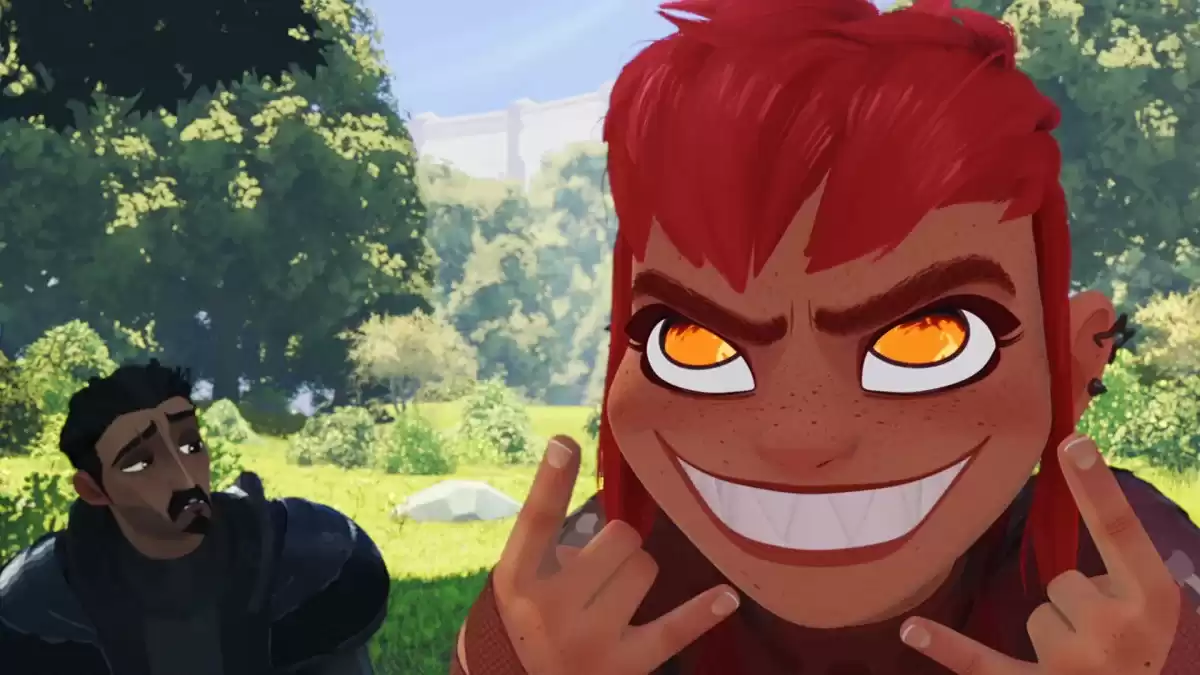Playing a non-conforming hero challenged Chloë Grace Moretz in 'Nimona'
Netflix's new animated film Nimona, based on a celebrated graphic novel, features a gender-nonconforming superhero who helps LGBTQ individuals feel seen. The film's directors and actors aimed to treat LGBTQ themes truthfully and honestly, resulting in an overt love story and the representation of queer characters. The film's creators hope that young viewers who need to see these stories will find a way to watch it.
Korean American film director, producer, actor, and online personality, Chloë Grace Moretz, has taken on a powerful new role in Netflix's animated film Nimona. Moretz plays the shape-shifting title character, Nimona, who has the ability to make LGBTQ kids feel seen. The film, adapted from the celebrated graphic novel by ND Stevenson, tells the story of a gender-nonconforming superhero who helps a reluctant villain topple the quasi-fascistic powers in their retro-futuristic medieval kingdom.
Stevenson, who identifies as transmasculine and bigender, created Nimona as a teenager and used the character to explore his own feelings about gender. Moretz felt a sense of responsibility in bringing Nimona to the screen due to the personal backstory. She aimed to represent Nimona as a fully fleshed-out character, embracing her gender-nonconforming and fluid identity.
The film's directors, Nick Bruno and Troy Quane, also drew inspiration from Stevenson's experiences during the years-long process of bringing Nimona to life. They aimed to treat the LGBTQ+ themes in the story truthfully and honestly, resulting in a connection that extends beyond the specific community.
Stevenson has a history with Netflix, having created the acclaimed She-Ra reboot that incorporated trans themes into its narrative. However, Netflix faced backlash for releasing Dave Chappelle's controversial comedy special, The Closer, which contained jokes considered anti-trans. Stevenson prefers not to dwell on these negative stories and instead focuses on finding joy in his own journey.
Nimona not only represents Stevenson's personal journey but also includes LGBTQ narratives in its storyline. The directors made the decision to transform the subtle romantic relationship between Ballister and Ambrosius, which exists in the graphic novel, into an overt love story. This choice reportedly led to the cancellation of the film at Disney, which was uncomfortable with its pronounced gay themes. Netflix eventually picked up the project.
The directors felt it was important to authentically portray love in the film, as seen in Ariel's romantic scenes in Disney's The Little Mermaid. They wanted to show love in a way that reflects the world and resonates with audiences.
Eugene Lee Yang, who voices Ambrosius, praised Netflix for keeping the Ballister and Ambrosius kiss in the film. He believes it's essential for these types of stories to be seen and normalized, rather than treated as background elements.
Moretz and Yang acknowledge that there is resistance to LGBTQ stories in certain parts of the country but remain confident that the film's message will reach the young viewers who need to see it. They emphasize the importance of self-acceptance and acceptance of others, which are central themes in Nimona.
With Netflix's wide reach, the film has the potential to impact a large audience, including both children and adults. Nimona serves as a mirror, reflecting the current state of acceptance and the experiences of the queer community.











Comments on Playing a non-conforming hero challenged Chloë Grace Moretz in 'Nimona'